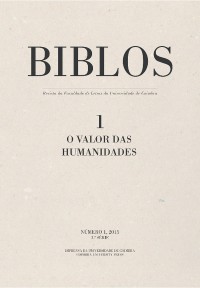Please use this identifier to cite or link to this item:
https://hdl.handle.net/10316.2/37837| Title: | O lugar da Literatura dos currículos: o caso dos exames de Língua Portuguesa do sistema educativo inglês | Other Titles: | Literary studies in foreign language curricula: a case-study of the A-level Portuguese syllabus | Authors: | Marques, Pedro | Keywords: | Education policy;Examinations;Literary text;MFL;Syllabi;Exames;Línguas estrangeiras;Política educativa;Programas de estudo;Texto literário | Issue Date: | 2015 | Publisher: | Imprensa da Universidade de Coimbra | Abstract: | The English examination system offers a variety of modern foreign language (MFL) examinations,
most of which are taken up by heritage language learners. These are subject to the same pressures as
the most popular MFL subjects (French, German and Spanish). In line with awarding body OCR
policy for MFL, the 2009 reform of the Portuguese language post-16 Advanced Level examinations
eliminated the list of literary texts which had hitherto been a standard feature of the examination at
this level. An examination of syllabi and examination papers suggests that the study of literary texts was
perceived as a useful instrument for advanced language training aimed at promoting a higher level of
thinking, especially in regard to writing skills. However, although the guided reading of literary texts
still entails a capital of prestige and suitability for advanced language study, it is difficult to reconcile it
with a profit-oriented education policy aimed at widening access to language learning and providing
benchmarked outcomes. O sistema de habilitações inglês disponibiliza uma variedade de exames de línguas estrangeiras (LE). Estas são estudadas sobretudo enquanto línguas de herança mas estão sujeitas às pressões que se fazem sentir sobre as disciplinas mais populares (francês, alemão e espanhol). Em consonância com a política geral da comissão de avaliação OCR para as LE, a reforma dos exames de português Advanced Level eliminou a lista de obras literárias que até 2009 fizera parte dos programas de estudos. A análise dos documentos orientadores e dos exames indicia que a leitura literária era tida como instrumento do estudo avançado de LE e do treino da capacidade de raciocínio, sobretudo em relação à escrita. Apesar do capital de prestígio que detém enquanto forma de aprendizagem avançada, a leitura orientada do texto literário poderá não alinhar com uma política educativa de popularização do estudo de línguas, de padronização de resultados e de instrumentalização económica. |
URI: | https://hdl.handle.net/10316.2/37837 | ISSN: | 0870-4112 | DOI: | 10.14195/0870-4112_3-1_12 | Rights: | open access |
| Appears in Collections: | Biblos |
Files in This Item:
| File | Description | Size | Format | |
|---|---|---|---|---|
| o_lugar_da_literatura_nos_curriculos.pdf | 2.59 MB | Adobe PDF |  |
Items in DSpace are protected by copyright, with all rights reserved, unless otherwise indicated.
